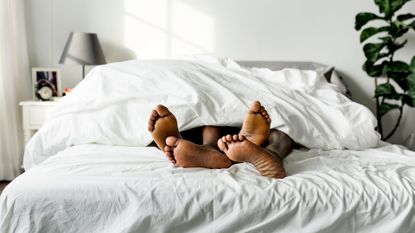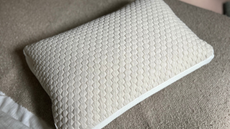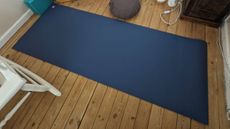It's National Sleep Month! World Sleep Day falls on the 18 March, but, in the UK at least, someone has decided that 24 hours just isn't enough, and declared a whole month dedicated to snoozing. (If you're thinking this might be a good excuse to upgrade your bed, we're expecting plenty of brands to drop some strong cheap mattress deals in honour of the event).
To mark the occasion, independent sleep consultant Dr Neil Stanley has teamed up with bedding brand Piglet in Bed to offer some sage advice – based on 40 years of sleep research – to help you sleep better. One key thing to consider is the temperature of your room.
The general consensus among experts is that the ideal temperature for a bedroom at night is around 16-18C (that's 60-65F). However, Neil emphasises that it's not just how warm or cool your room is that you need to pay attention to if you're going to score a perfect night's sleep. You also need to think about the temperature of your immediate environment, i.e. inside your bed.
You're aiming for a thermoneutral temperature. This is the temperature range at which your body can maintain a normal temperature without needing to use energy beyond the basal metabolic rate. Neil puts this around 29C, although be aware it will vary based on things like your body weight.
The good news is you probably won't need to do too much to achieve this. "You are just one big fleshy hot water bottle, so you will heat the space to this temperature just by being in bed," says Neil.
The key thing is to find the right balance between room temperature and bed temperature. "During the night, the body needs to lose heat and this is done mainly through the head and face, the only bits that usually stick out from under the duvet. Thus a cool bedroom facilitates this heat loss," he continues.
"However, if the room is too hot or you are too hot under the duvet, it is more difficult for the body to lose heat and this will cause disturbed sleep. The same is also true if you are too cold, as this means the body has to work hard to maintain its optimal temperature and again, this can disturb sleep."
If you need to boost (or reduce) in-bed temperature, head to our best duvet and best pillow guides for some top bedding recommendations. For more advice from Neil on how to sleep better, you'll find the full article here.











